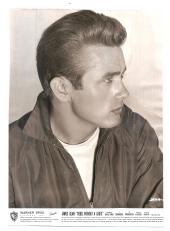'Amigo' explores the imperialist Philippine-American war
The rain in Spain's domain fell mainly in the Philippines -- a five-week monsoon season in which the drenched American occupiers were "going bug-house crazy."
Remember the Maine?
The theory of the Spanish-American War (1898-1902) was regime change and nation-building. The practice was something different. How could the United States go from idealistically anti-imperialist (our rationale for kicking the Spanish out of Cuba) to violently imperialist in the Philippines just a few months later?
"Amigo" is director John Sayles' compelling take on the American mini-war nobody remembers -- and the people caught literally and figuratively in the crossfire between its warring factions.
The story takes place in 1900 in northern Luzon, a dumping ground for Spain's worst priests and bureaucrats, of whom supercilious Father Hidalgo (Yul Vazquez) is an archetype. As the sole English-speaker in the little village of San Isidro, he thwarts rather than facilitates communication between the Yankee occupiers and the local peasants.
Admiral George Dewey has cornered and sunk the Spanish fleet in Manila Bay, in less than an hour. He has assured revolutionary leader Emilio Aguinaldo that America needs no new territory or colonies and will recognize the new Philippine Republic. Instead, on Dec. 21, 1898, President William McKinley issued a wonderfully named "Proclamation of Benevolent Assimilation," in response to which the Filipino insurrectos renewed their fight for independence -- this time against a much stronger colonial power.
"Amigo" picks up in the middle of this situation. A Yankee garrison in the conquered town of San Isidro has put gentle, much-loved Mayor Rafael (Joel Torre) in a terrible position. He must keep both the Americans and the rebels convinced of his cooperation, while simultaneously trying to protect the local populace. Anyone accused by one side or the other side of "enemy collaboration" is executed.
Ethical and apolitical, Rafael is derisively called "Amigo" by the U.S. troops who occupy his village and pressure him to help track down the guerillas. But his own brother is a local insurrecto leader. Good-cop American officer Compton (Garret Dillahunt) wants to win the people's hearts and minds. Bad-cop Colonel Hardacre (played with heavyhanded villainous bravado by Chris Cooper) thinks some enhanced interrogation methods are needed to find the rebels' location -- including the "water cure" (well documented, and virtually identical to the waterboarding at Abu Ghraib).
The one thing the Yankee and Spanish occupiers had in common was racist contempt for -- and assumption of superiority to -- the indigenous indios.
Filipino star Joel Torre turns in a soulful, unaffected, heartbreaking performance in the title role. Mr. Sayles, who has been called "the heart and soul of independent liberal filmmaking in the U.S.," lives up to that billing here. His "Return of the Secaucus Seven" (1979), "Eight Men Out" (1988), "City of Hope" (1990) and "Casa de los Babys" (2003) -- inter alia -- were all beautifully written as well as directed. He's a fine storyteller and a stickler for period detail, with wonderful attention to daily life -- in this case, the rice paddies, water buffalo, naive young soldiers, and the casual intrinsic racism in our oh-what-a-lovely-history-of-war.
The "Fil-Am" war, by the way, inspired Mark Twain (with Andrew Carnegie and William Jennings Bryan) to found the Anti-Imperialist League in 1898, declaring: "I have never been able to get at the bottom of the origin of our antagonism to the natives... We were to relieve them from Spanish tyranny to enable them to set up a government of their own ... not according to our ideas, but according to Filipino ideas. That would have been a worthy mission. But now we have got into a quagmire from which each fresh step renders the difficulty of extrication immensely greater."
Sound familiar?
An estimated 1 million Filipino civilians died in that conflict, and 4,165 Americans (most of them from disease).
It's not a pleasant chapter in our history, but it was a crucial one -- the first big military foray outside our own hemisphere, a runner-up to two world wars and America's status as a global power. It was also our educational "Intro to Guerrilla War 101."
As such, it's rough on the viewers. It is also an idealized and didactic fictional account, in which both the emotional and political decks are stacked. Amigo is doomed either way.
An 1898 bill forbidding the annexation of Cuba (that long-thwarted dream of U.S. presidents from Franklin Pierce on) had infuriated the "jingo" expansionists. If we couldn't have Cuba, we needed SOMETHING to show for our trouble, they felt. How 'bout just hanging on to the Philippines? So it was "bought" from defeated Spain for $20 million (with Puerto Rico and Guam thrown in -- such a deal!).
"Providence has given the United States the duty of extending Christian civilization," said real-life Sen. Knute Nelson (R-Minn.) at the time.
"Religion is a civilizing influence," says fictitious Father Hidalgo in the film.
"God will guide us through," says Rafael's wife.
"God is busy somewhere else," Rafael sadly replies.
* * *
[In English, Spanish and Tagalog, with subtitles.]






